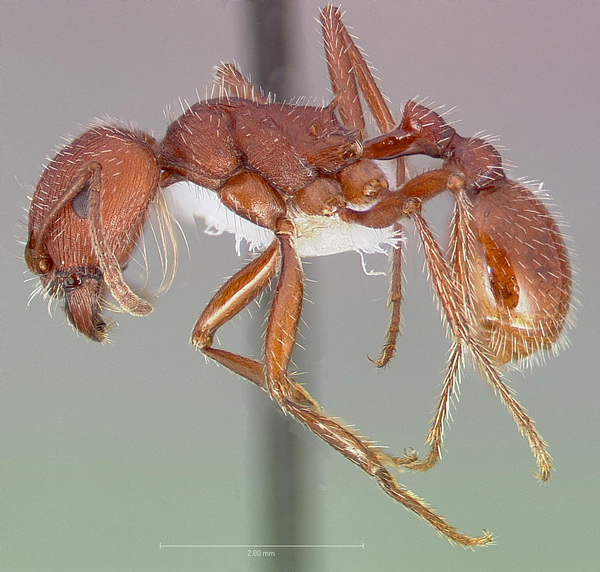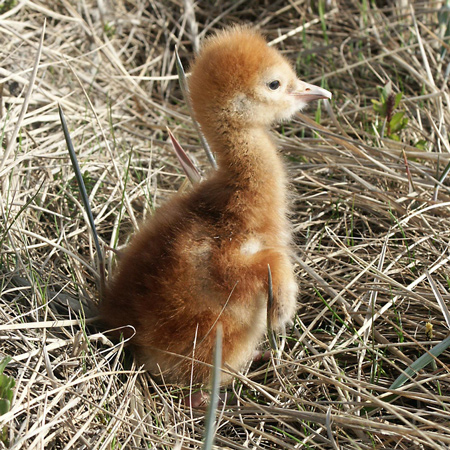At the headwaters of the Missouri near present Three Forks, Montana, the tired enlisted men hunt, make leather, and sew new clothes. Lewis takes celestial observations, describes the local ants, and plays with a young sandhill crane.
A Sandhill Crane
by Yellowstone Public Radio[1]Originally aired weekdays by Yellowstone Public Radio during the Bicentennial observance of 2003-2006. Narrated by Hal Hansen. Scripts by Whit Hansen and Ed Jacobson. Produced by Leni Holliman. © … Continue reading
Hunting
his morning some of the hunters turned out and returned in a few hours with four fat bucks, the venison is now very fine we have killed no mule deer since we lay here, they are all of the longtailed red deer which appear qu[i]te as large as those of the United States.
—Meriwether Lewis
Dressing Skins
the men have been busily engaged all day in dising [dressing?] skins and making them into various garments all are leather dressers and taylors.
—Meriwether Lewis
Local Ants
there is also in these plains a large ant with a redish brown body and legs, and a black head and abdomen; they construct little perimids of small gravel in a conic shape, about 10 or 12 inches high without a mixture of sticks and with but little earth.
—Meriwether Lewis
Clark’s Health Improves
Capt. Clark is much better today, is perfectly clear of fever but still very languid and complains of a general soarness in all his limbs. I prevailed on him to take the barks which he has done and eate tolerably freely of our good venison.
—Meriwether Lewis
Young Sandhill Crane
the hunters brought in a living young sandhill crain; it has nearly obtained it’s growth but cannot fly . . . . we see a number of the old or full grown crains of this species feeding in these meadows. this young animal is very ferce and strikes a severe blow with his beak; after amusing myself with it I had it set at liberty and it moved off apparently much pleased with being releived from his captivity.
—Meriwether Lewis
Celestial Observations
Observed Time and Distance of
‘s Western limb from α Antares, with Sextant
East.
—Meriwether Lewis
Weather Diary
State of the thermometer at rise
Weather at rise
Wind at rise
State of the Thermometer at 4 P.M. Weather at 4 P.M. Wind at 4 P.M. State of the river 54 [above 0] fair after rain N. 82 [above 0] fair N. E. raised ½ in. —Meriwether Lewis[2]To assist the reader, the editor of this web page has omitted the date column, merged the “State of the river” columns, and spelled out some abbreviations.
Experience the Lewis and Clark Trail
The Lewis and Clark Trail Experience—our sister site at lewisandclark.travel—connects the world to people and places on the Lewis and Clark Trail.
Plan a trip related to July 29, 1805:

Three Forks of the Missouri is a High Potential Historic Site along the Lewis and Clark National Historic Trail managed by the U.S. National Park Service. The site a Montana State Park.
Notes
| ↑1 | Originally aired weekdays by Yellowstone Public Radio during the Bicentennial observance of 2003-2006. Narrated by Hal Hansen. Scripts by Whit Hansen and Ed Jacobson. Produced by Leni Holliman. © 2003 by Yellowstone Public Radio. |
|---|---|
| ↑2 | To assist the reader, the editor of this web page has omitted the date column, merged the “State of the river” columns, and spelled out some abbreviations. |




